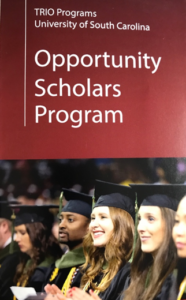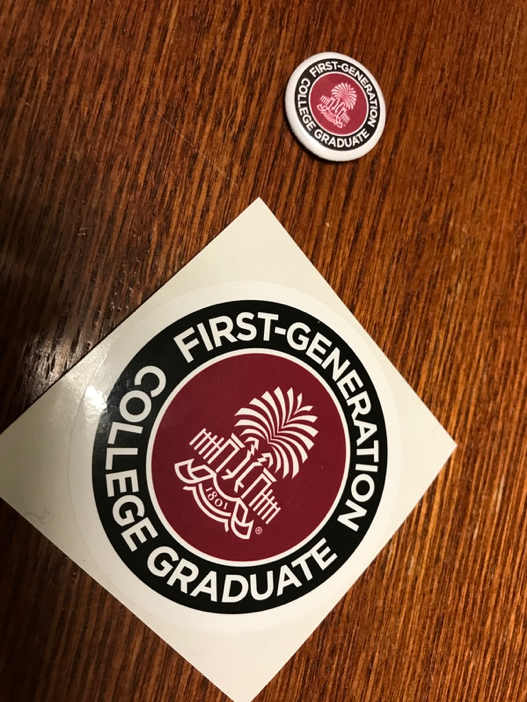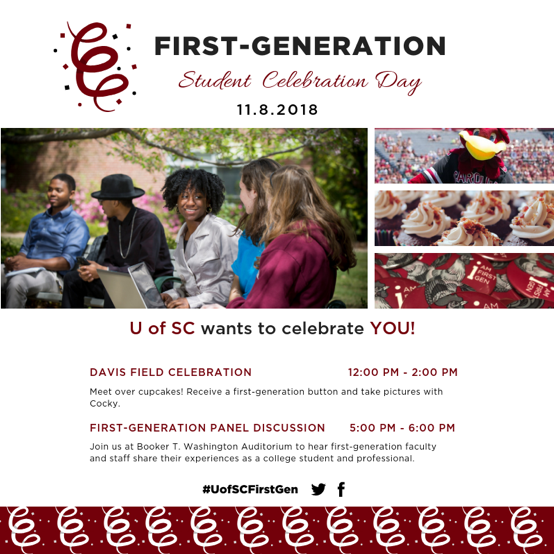The next stop on this whirlwind tour was the University of South Carolina (USC) and specifically the National Resource Center for FYE and Students in Transition. The Center is somewhere that I have wanted to visit for a number of years but I did not expect the extreme care and attention that was paid to my visit; there is no doubt in my mind now that southern hospitality does exist and I have benefitted from it. My itinerary over two days, organised by the wonderful Rosa Thorn-Jones, included meetings with key staff from all the areas within the university to provide a comprehensive overview of the range of supports that are offered to first in family students (of first-generation students as this cohort is referred to in the US). These meetings were complemented by interviews with the Director of the Centre (Dr Jennifer Keup), the Head of Research (Dr Dallin Young) as well as the Vice Provost and Dean of Undergraduate Studies, (Prof Sandra Kelly).
The combination of all these encounters provided me with depth of understanding of not only the ethos of USC but also, what is happening for first in family students across the sector. By far the most interesting insight is that there is renewed attention on this cohort within the US as their intersectionality is being recognised and also, the fact that this cohort can be reached in a positive and celebratory sense. To hear this repeatedly in meetings and conversations was extremely validating for me personally as this is what I have been proposing in Australia and is embedded within the strengths perspective that I have adopted in my own work.

This underlying theme of ‘success’ features strongly in USC discourse – from the naming of programs through to the choice of language amongst staff and stakeholders. For example, the Opportunity Scholars program which is targeted at low-income students who are the first in their families to come to university – this program provides support in a multi-pronged way including mentoring, access to targeted first in family programs ie university 101 programs , financial aid, extracurricular opportunities and also, ongoing case management (through the entire degree).

The university is also part of the National Day of Celebration for First Generation Students, this day of celebration was only implemented in 2017 and it calls on universities across the States to organise activities that identify and value this cohort of students. As part of this day of celebration, USC has asked academic and faculty staff to self-identify as first in the family, creating a database of those staff willing to engage in activities targeted at the FiF cohort. Staff have been provided with stickers and pins to highlight their status:
In addition to this ‘self-identification’, the university will also host a First Generation panel and also provide First Gen cupcakes for all students. For those of you interested in learning more about the approaches suggested to celebrate this National Day, the event organisers (NASPA) have provided a list of ‘50 ways to celebrate’– also I have copied just two very simple ways below:
- Curate a “we’re glad you are here” campaign to remind first-generation students of the ways in which they contribute to strengthening your campus community.
- Create a university first-generation Snapchat filter and ask students to create stories!
Importantly at USC, the foregrounding of FiF student experience is evident throughout the university – this is not an ‘invisible population’ at this institution and instead is recognised as a valued facet of the institutional profile:

The support provided to these students is highly integrated and in many cases, these are existing services but are rebadged for the FiF cohort and importantly, provided in a proactive manner. Simply, receiving support does not require the student to approach the service, instead the student is contacted based on application data. This is key I feel, as my research and other studies have pointed to how many students who are the first in their families to attend university may have a profound sense of not fitting in or perhaps little sense of belonging or entitlement with regard to their HE attendance. Hence, for some learners seeking out or accessing support services may confirm this sense of being an ‘imposter’ and so students may be reluctant to seek out support – this makes the proactive nature of support vital to its effectiveness and this is something that USC strive for in their approach.
Overall, this visit to USC provided some key insights into how the sector is more broadly addressing and revisiting the First Gen or FiF student population and have created a range of bespoke supports that target this cohort. If you are interested in reading more about the nature of these, the Fellowship report has been published here.

Great to hear that FiF students are on the radar in the US. Wonderful strategies in place, many of which are supported by my research in Australia too!